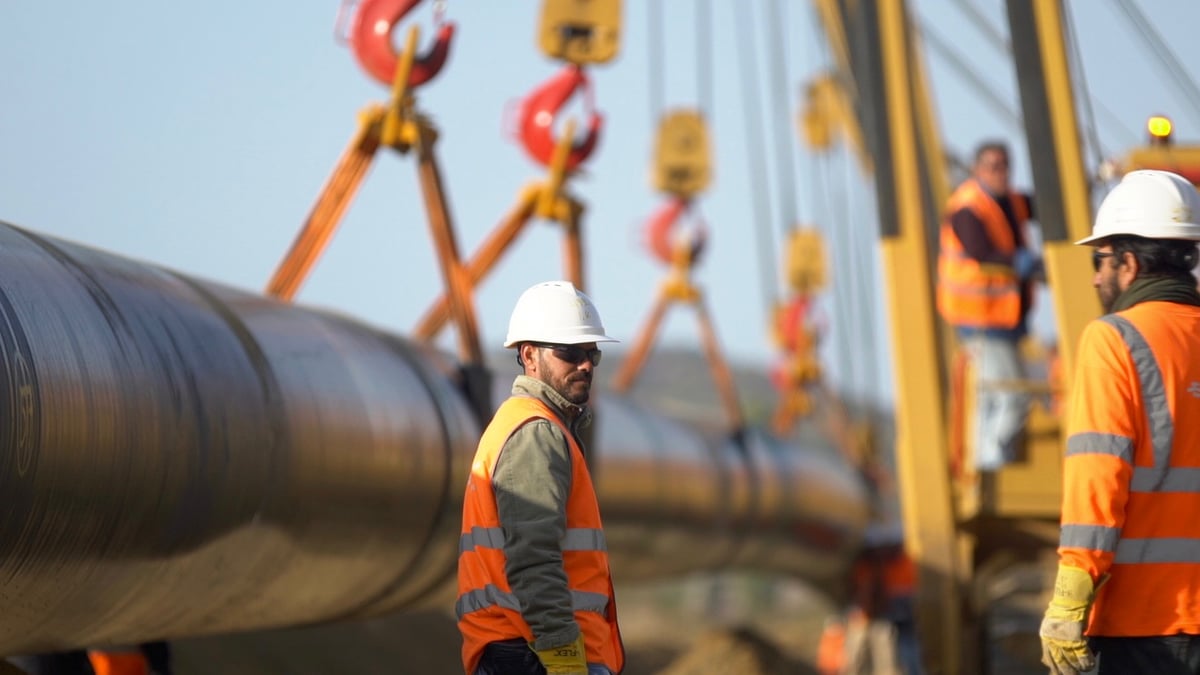Between 2021 and 2024, when energy prices spiked in the wake of the pandemic and Russian full-scale invasion of Ukraine, Europe’s fossil-fuel import bill increased by €930bn, a report by the think tank Ember published on Thursday (16 October) found.
Overall, the total costs of Europe’s fossil-fuel imports during these three years amounted to €1.8 trillion, with businesses and consumers bearing the burden for increased prices.
The skyrocketing prices during the energy crisis partly reflect Europe’s great exposure to disruptions in the energy market.
For decades, European countries have imported cheap Russian fossil-fuels. Now, new dependencies are being formed.
“It proved to be an incredibly costly gamble when Russia started decreasing supplies to Europe in advance of the invasion in Ukraine and prices started to go up”, Chris Rosslowe, Ember’s analyst and author of the report, told EUobserver.
In 2024, over half (58 percent) of the EU’s energy mix was coming from fossil-fuel imports — significantly higher than in countries like China (24 percent) or India (37 percent).
This dependency, Ember said, is making European companies and consumers vulnerable to price shocks and supply disruptions.
When it comes to LNG, the US was the largest supplier to the EU in 2024.
And this situation has already been exploited by the US during the trade negotiations in the summer, Rosslowe said. In addition, he also mentioned how Qatar, a major gas supplier for the EU, has threatened to cut LNG imports unless the bloc watered down its labour and environmental rules.
The bloc’s top four gas suppliers (Norway (33 percent), US (16 percent), Russia (18 percent) and Algeria (14 percent)) provided 83 percent of imports in 2024.
Oil imports are more diversified, although five import countries still covered 54 percent of the oil demand in 2024.
For Rosslowe, the only solution for this situation is electrification across all sectors, which can strengthen Europe’s energy autonomy and protect consumers from geopolitical risks in supply chains.
“Increasing the use of electricity massively improves efficiency across the whole system so we can simultaneously lower energy consumption”, he told EUobserver. “Electrification is so much more efficient than fossil-fuel alternatives.“
Every month, hundreds of thousands of people read the journalism and opinion published by EUobserver. With your support, millions of others will as well.
If you’re not already, become a supporting member today.
